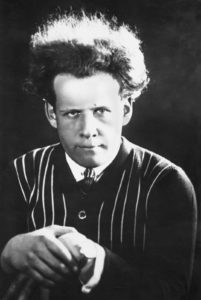Many times I have gone to a local Landmark Theater to take in an Art House film and before the feature presentation experienced the chain’s promotional material that ended with ‘The Language of Film is Universal.’ (BTW the idea that Universal Studios never took up this as a slogan is terribly amusing.) Of course Landmark Theaters uses that bit of advertising copy because Art house feature heavily favor international production, but it has the side benefit of being true.
Film has a grammar, cut two shot together and they create a meaning from that context that neither possessed, fade to black and then back up and the audience understands that a lengthy segment of time has passed, have one character look to the right and speaking while cutting to another character looking left and speaking and we draw the connection that they are conversing. (Beautifully demonstrated in The Last Jediwhen Rian Johnson used the simplest film grammar instead of showy special effect to connect Kylo and Rey.) There is a lot to film grammar and I listed only a few possible ways that you can see it; what fascinates me is that it is truly universal.
Take the bit about two shots creating a third meaning. This was explored near the birth of cinema by Soviet filmmaker and theoretician Sergei Eisenstein, looking here as though he inspired David Lynch’s Eraserhead. One of Eisenstein’s more famous experiments involved an actor looking directly into camera with a neutral expression, then cutting from the actor to various other shots of food, death, danger, and so on. When projected for an audience and asked what emotion the actor expressing the juxtaposition of the two images always created meaning where the actor had expressed nothing. Hunger is the next shot was food, horror at death and so on.
David Lynch’s Eraserhead. One of Eisenstein’s more famous experiments involved an actor looking directly into camera with a neutral expression, then cutting from the actor to various other shots of food, death, danger, and so on. When projected for an audience and asked what emotion the actor expressing the juxtaposition of the two images always created meaning where the actor had expressed nothing. Hunger is the next shot was food, horror at death and so on.
This was true not only for the peoples of Russia, but Western Europe, the Americas, and Asia. Again and again we find that the actual grammar of cinema transcends language and culture. It doesn’t matter where you come from, how you are raised, what your religious thoughts and convictions are, film works the same way for you as it does everyone else. It is a staggering thought and example of the commonality of humanity once you strip away the surfaces differences.
The Language of Film isUniversal.
